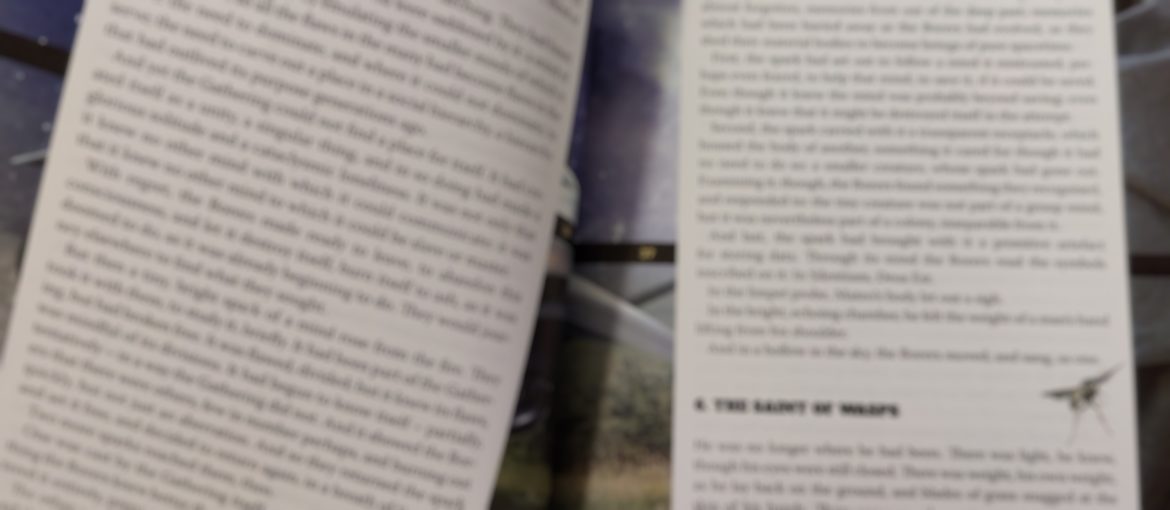I’ve resolved to try and read a short story every day, and I’m starting with a backlog of recent issues of Interzone magazine. Here are a few thoughts on the stories in issue #278.
—
Soldiers Things, Tim Lees. A portrayal of the trauma of combat and of a consequent loss of identity. A soldier returns home where he is welcomed as a hero. Yet he is also one of the few who seem to have survived, and has been released into a community that does not understand him, and which, bitterly, he himself no longer understands. What is the protagonist’s identity? What was his past? He contradicts himself, and these contradictions drive this story.
Doomed Youth, Fiona Moore. I really liked this one. It essentially takes the concept of Them! (the 50s giant ant movie) but normalises it as something that people in the US have simply been living with for years. Racial tension pervades the story, and its denouement marries the conceit and theme perfectly. I could also believe that this story actually began with the pun.
The Path to War, Louise Hughes. A story about how the stories we want are not necessarily what storytellers will tell us. Are they then stories that we need? Or is to suggest that an overstatement of the importance of storytellers and stories – in stark contrast to a thrown knife? Is the role of the storyteller in the gathering, not the telling?
Heart of an Awl, Eliza Ruslander. An odd story about a widow, her deceased husband, and the artificial intelligence of their car which has been transferred into his body. We follow their efforts to live together and attempts to understand one another. I wouldn’t say this is about the American love affair with the car, but one can’t help thinking of it. This story is more about grieving, and processing the loss of something or someone integral to one’s life. Coping mechanisms can sometimes seem strange to outsiders, whereas those experiencing them may consider them a perfectly rational step.
Zero Day, Sheldon J. Pacotti. A story set during the outset of full-scale cyber warfare between great powers. The protagonist is a minor cyber warrior with the US military on leave when the war begins. He stubbornly continues attempting to get drunk and get laid, making use of his training and tech in pursuit of this, even as things fall apart about him. I like how this story revolves around what actually matters most to its protagonist, those base human desires persisting even in the face of new methods of conflict and threat.
Birnam Platoon, Natalia Theodoridou. A story told through fragmented narration interspersed with snippets of courtroom exchanges, concerning the plant-based super soldiers that were supposed to win a war and bring peace. At first they are a resounding success, but more and more the Birnam soldiers question how they are bringing about that peace. A bitter tale of the cyclical violence and cruelty of war, and humanity’s capacity for both.

